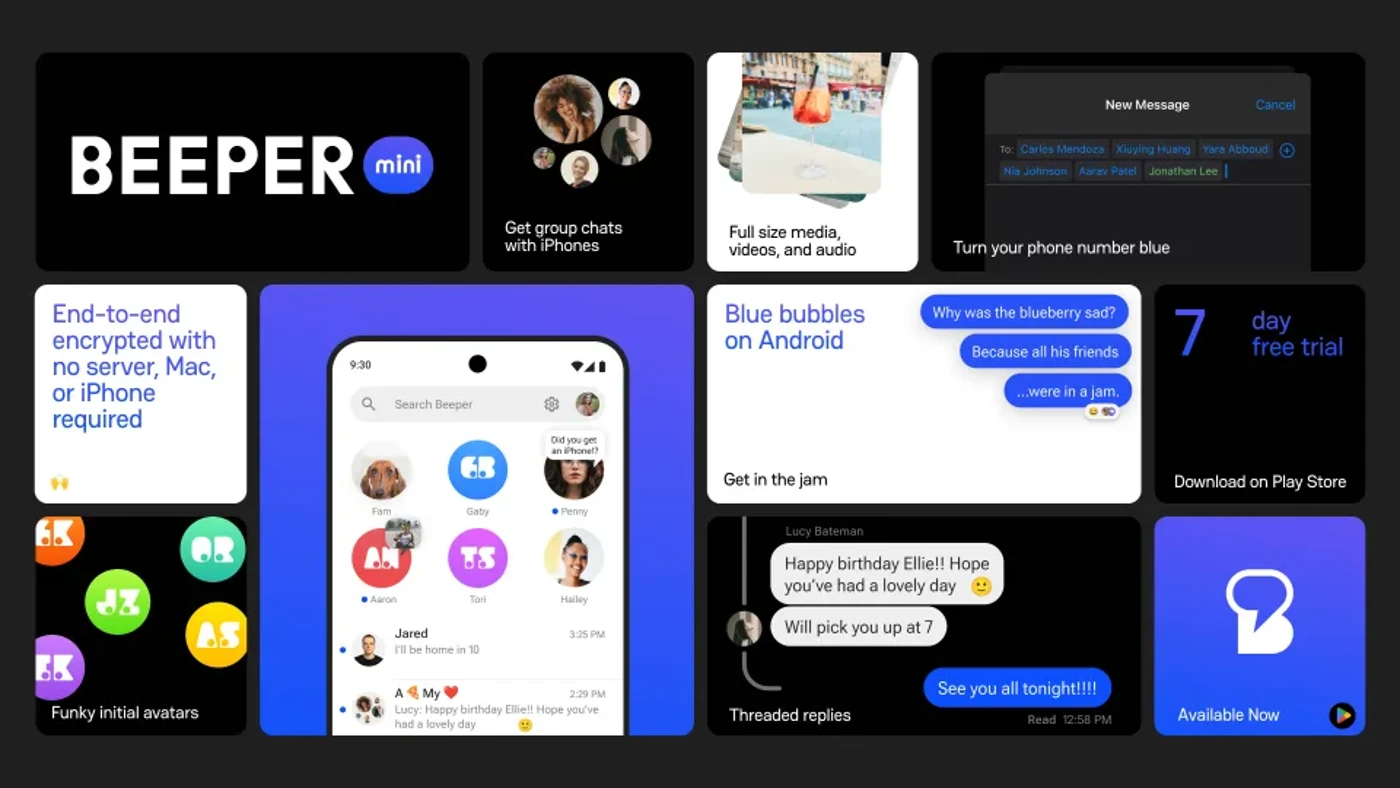Apple has blocked Beeper Mini, an Android app which allowed messaging between Android and iPhone users.
The app allows Android users to seamlessly integrate into iPhone-only group chats and enjoy the full spectrum of messaging features like read receipts, high-resolution media sharing, and voice messages, all with the familiar blue bubble interface.
Beeper Mini emphasizes enhanced security and privacy, featuring end-to-end encryption without the need for a Mac relay server or Apple ID. The direct connection to Apple servers ensures that encryption keys remain on the user’s device, preventing external access to Apple accounts.
Beeper Mini was developed through an extensive effort to reverse engineer Apple’s messaging protocol, led by a 16-year-old high school student. Despite initial success, reports of technical problems surfaced, leading to speculation that Apple had managed to close the loopholes that allowed the app to operate.
Beeper’s developers and users hoped that Apple would find it cumbersome to block the Android app, given the extensive reverse engineering involved. However, the blocking process turned out to be more straightforward than anticipated, throwing a significant obstacle in Beeper’s plans.
Beeper CEO Eric Migicovsky did not dispute that Apple had successfully blocked Beeper Mini. He questioned Apple’s commitment to user privacy and security, emphasizing that the app enabled iPhone users to send encrypted messages to Android users, potentially offering a more secure alternative to unencrypted SMS.
Migicovsky expressed disappointment with Apple’s actions, given their recent announcement of RCS support, suggesting that Beeper Mini provided a valuable service.
In a statement, Apple said:
“We took steps to protect our users by blocking techniques that exploit fake credentials in order to gain access to iMessage,”
“These techniques posed significant risks to user security and privacy, including the potential for metadata exposure and enabling unwanted messages, spam, and phishing attacks. We will continue to make updates in the future to protect our users.”
Though Apple does not mention any apps by name, it stands to reason that, given the timing of Beeper Mini’s launch and recent troubles, that this refers to the loophole the platform was using.



